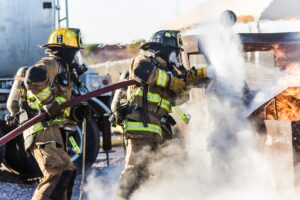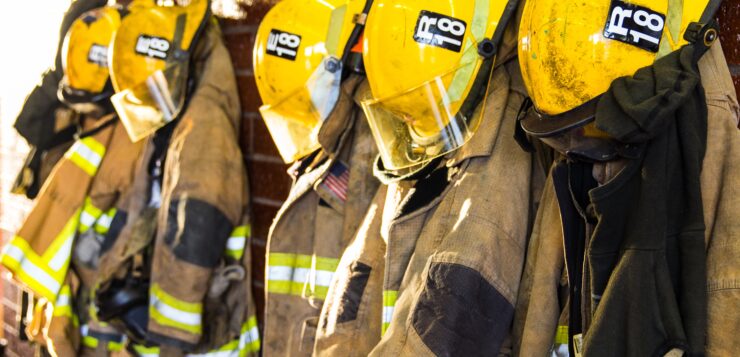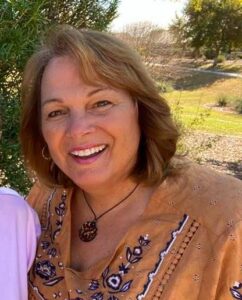
I was a firefighter for nearly 45 years. It was an adventurous, exciting, and fun career. I responded to emergencies and disasters throughout the U.S., Canada and Australia, including a month in New York City following the September 11th attacks. I was honored to have spent eight months working in Washington DC during the same time. My career spanned being a smoke-eating, living-in-the-dirt firefighter, to testifying before the U.S. Senate Armed Forces Committee in Washington. On balance, I’d say I loved my career.
The majority of my career was spent working for the federal government as a wildland firefighter, but I spent twelve years in a municipal fire department as well. If someone were to read my curriculum vitae, they might think I had it all figured out, like there was a plan. As is often the case, making assumptions can be dangerously inaccurate. But like a cat falling from a tree, I always landed on my feet. I might have crashed into a few branches on my way down; bruised and scarred, but yes, always landing on my feet.
I was very fortunate for my career. Some might say I was lucky. Others would prefer to say I was blessed. So instead, I just say I was amazingly fortunate. Even though I had a long career as a firefighter, then fire chief, then assistant director, life was difficult. It wasn’t always as it seemed.
I started my career as a young man, but when I retired at 63 years of age, I was a woman. I transitioned halfway through my fire career, when the façade covering my real self was coming apart. Whether by good luck, fortune, or the Holy Spirit, I had quit my job at the fire department to go back to school and get a graduate degree. By the time I was back in uniform and at the fire station, I was legally female. That’s probably as easy as it gets. Easy, if you don’t count the loss of family and friends along the way. But that’s another story.
When I came back to firefighting after getting my master’s degree, I was just another female fire chief. Some people knew my story, some didn’t. Those who thought they knew, of course, didn’t really know; they knew a piece of the story someone had told them. It was a repeated story that was changed and told again, repeated over and over. But interestingly enough, no one ever mentioned anything to me. No one ever said, “Hey Bobbie, I just heard that you were trans.” And that was just fine with me. I never once lied about who I was, but I never volunteered my personal information at work either.
When you’re a female fire chief, you have to prove yourself. You’re suspect because you’re female in a male-dominated profession. I had guys tell me the only reason I was selected for some of my promotions was because I was a female, and the agency was promoting diversity. I asked them if it could be because of my many years of experience and multiple degrees. It’s an odd twist, isn’t it? I wasn’t discriminated against because I was transgender. But I was accused of getting promotions because I was female. And as a female fire chief, I had to keep a chip on my shoulder waiting for guys to doubt my abilities and resist my leadership.
I went from being a not-masculine-enough male firefighter who was ridiculed by co-workers to being a competent and strong female fire chief and leader. It was mostly smooth sailing after I transitioned. But a few incidents reinforced my belief to keep my head down, perform my job at the highest level, and not bring up the fact that I was trans.
I overheard a conversation once between an agency administrator and my boss. My boss had been super supportive of me as the new Division Chief in his organization. But the conversation I was privy too reinforced my strategy of being tough, competent, and keeping my mouth shut about being trans.
My boss was arguing with the administrator that there were no LGBT folks working in his organization. He was sure of it! “Absolutely not,” he said. “If there were any of “them” in my organization, I’d know.” That’s what he believed. Instead, when he saw me, he saw a good strong female firefighter/chief who went to church on Sundays. That was important to him. And I didn’t go to church for his benefit, but for mine. But that’s what he saw. His attitude only reinforced my strategy of keeping my head down and doing a good job. Obviously, he didn’t know my history. Why should he? But his attitude is still normal in small-town-USA.
Around the same time, I was also assigned to an Incident Management Team (IMT). IMTs are assigned to large wildfires, disasters, and other emergencies when the incident is too complex for the local agency to deal with. Our IMT had just finished fighting a large wildfire in Wyoming. Some of the IMT members and I were sitting around an airport bar waiting for a flight home that was not going to arrive that day. No worries for us. My peer fire chief, six of our employees, and I sat around telling stories from the last couple weeks on the fire. Sipping beer, laughing, and feeling the camaraderie with my co-workers made me feel like life was good. I had arrived. No stress and no worries. I had just led this group through a challenging and dangerous fire assignment, and here we were, feeling pretty good about ourselves as a team.
During a lull in the storytelling and laughter, one of my guys asked my peer about how he liked his new town. My peer had just moved to a large city on the West Coast while the rest of us lived in smaller cities and towns. The peer, who was one of my closest work friends at the time, just smiled at the question. His answer knocked me back on my heels. He said, “Well boys, the big city is a lot different than I’m used to. Why just the other day, I saw one of them “he/she’s” on the train going into the city. He/she was showing off their new boobs. Yep, you don’t see that where I come from.”
I was shocked. This was a nice guy who just talked about seeing a “he/she.” What the hell?! Although I hadn’t known him long, we had become close. He was a good man talking smack on a subject he knew nothing about. And one of his good work friends sitting next to him was an out trans. I thought about what to say. Should I confront him? Should I say, “Well, you know I’m trans too.” But we were having such a good team building moment, I didn’t want to ruin it. Instead, all I say was, “Well, you just never know what’s going on in people’s lives.” That’s all I could muster.
Should I have spoken up and created a learning moment for that group of good, but ignorant, firefighters sitting in the airport bar that day? This was only a year or so after I had gone back to work. Some might say I should have spoken up. But that day, I chose camaraderie and team building over educating my co-workers about being transgender. Slowly over time, those guys all learned of my history. And as is always the case, they never brought it up. But their respect and friendship never wavered either.
Twenty years later when I retired, I started a blog/website where I tell stories from my 45-year firefighting career. Most of the stories are entertaining. Many have a good laugh, and almost all have an important leadership lesson. The stories have now been downloaded over a million times. I started writing a monthly article for a firefighting magazine, and with good results. But still no mention of my gender history. Just crickets.
I finally thought it was time to tell the rest of my story. It’s a complicated story and hard to explain, but I figured I had to try. I had to write it for me, and more importantly, I had to write it for all those families who might be torn apart due to fear and ignorance. I had to write it for the people who struggle with their own identity. I had to write it for the moms and dads who didn’t understand their child, and for co-workers and friends who just didn’t understand. I had to write it so maybe my own children would know who their dad really was. So, I wrote my book, Both Sides Of The Fire Line.
In the few months that the book has been on store shelves, I’ve heard from many people. Some of them are friends, and some I’ve never met. I’ve learned that my book is helping them understand their child or friend. Some of my friends didn’t know of my own past and they only learned I was trans after reading my book. I feel funny about that, but how am I supposed to announce to people that I’m trans? I’ve got mixed feelings about being “out.” But it’s hard to hide when I’ve written my memoir.
I don’t know what the future holds. But based on the past, I think it will continue to be an adventure.
Bobbie Scopa is a retired firefighter, podcast host, author and public speaker. You can listen to her recorded stories on her website or read her book, Both Sides Of The Fire Line, published by Chicago Review Press.







